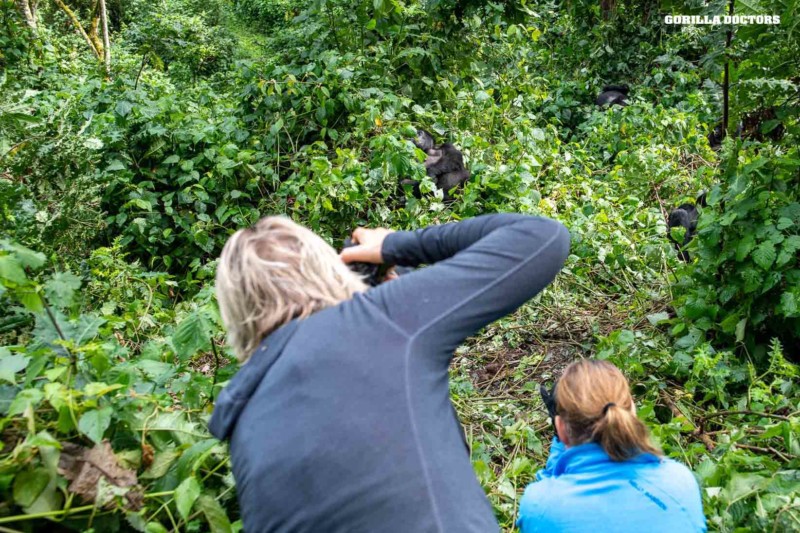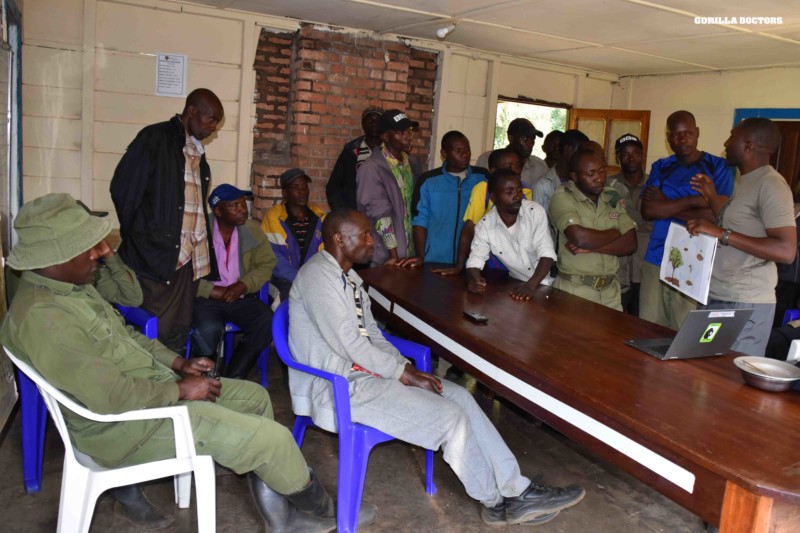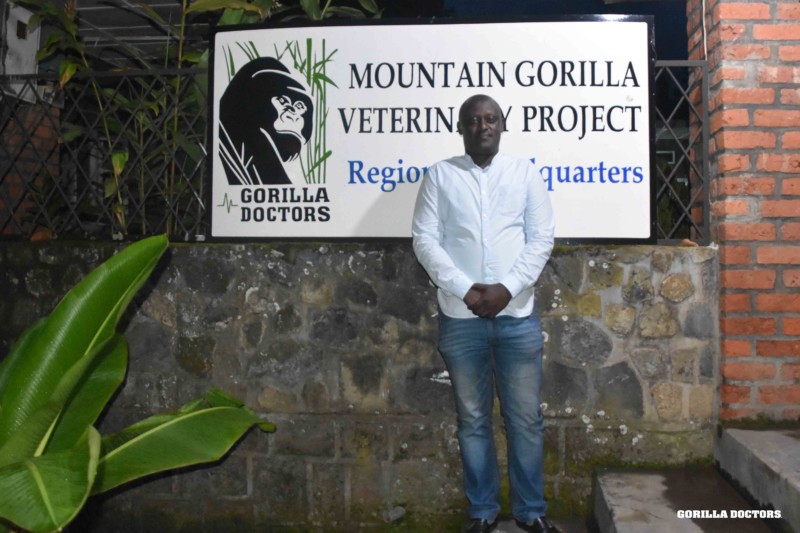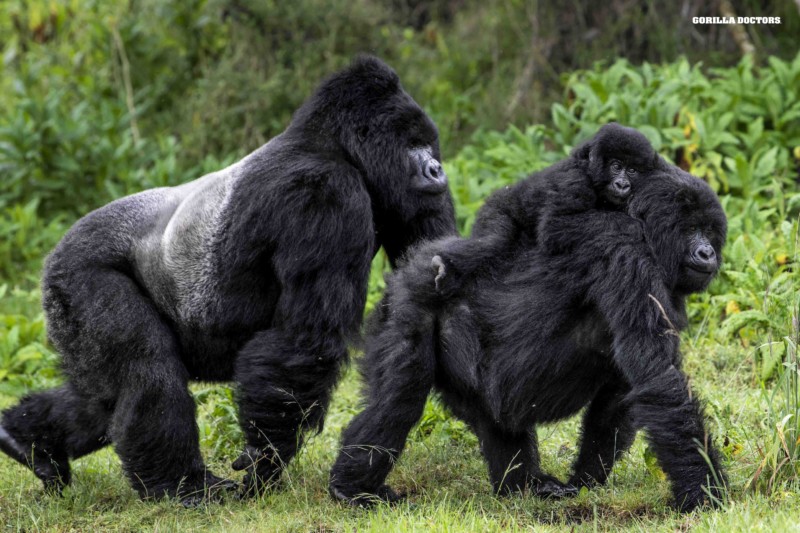Gorilla Doctors Brings One Health to Gorillas and People in Rwanda
By Gorilla Doctors Staff on Thursday, October 1st, 2020 in Blog.Gorilla Doctors’ mission is to conserve wild mountain and eastern lowland (Grauer’s) gorillas using veterinary medicine, science and a One Health approach. One Health recognizes the intrinsic connection between people, animals and the environment – especially when the environment is shared, as is the case with people and wild gorillas in East-Central Africa, one of the most densely populated regions on the continent. Through our scientific research, we also know that gorillas are susceptible to human diseases and vice versa1.
One World, One Health
Gorilla health is best protected by making sure that the people they are in close contact with are healthy too. Until COVID-19, thousands of tourists from around the world would venture into national parks to visit gorillas each year. Add to that the hundreds of rangers, trackers, researchers and others who work in the park, and the opportunity for gorillas to be accidentally exposed to human-borne pathogens becomes quite high. Despite this risk, tourism and conservation efforts have resulted in an annual population growth rate for habituated mountain gorillas of 4%. In contrast, unhabituated mountain gorillas, who do not come in close range of humans, have an annual growth rate of negative 0.7%2. The benefits of gorilla tourism far outweigh the risks, but addressing human health is an essential piece of Gorilla Doctors’ One Health approach to gorilla conservation.

Tourists with mountain gorillas in Bwindi Impenetrable National Park, Uganda, 2019. Photo by Skyler Bishop for Gorilla Doctors.
To that end, Gorilla Doctors’ One Health approach included pioneering an Employee Health Program starting in 2001 that provided health screening and vaccinations to park employees and their families. Over the past 19-years, funded by donors including Partners In Conservation, one of the earliest supporters, the Houston Zoo and Arcus Foundation, Gorilla Doctors’ Employee Health Program, provided annual physicals, immunizations, referrals, eyeglasses, and health education programs, reaching more than two-thousand people.

Dr. Eddy, Head Veterinarian, DRC (far right holding book), leads an Ebola virus workshop on living safely with wildlife, 2019. © Gorilla Doctors
This successful program is now being established more permanently at Volcanoes National Park in Rwanda. Made possible by Gorilla Doctors through a generous donation to Gorilla Doctors from Ms. Barbara Wolfe, the Rwanda Development Board has hired the park’s first-ever medical doctor who is dedicated wholly to providing health care to park personnel and tourists.

Dr. Jean-Pierre Higiro in front of Gorilla Doctors’ Regional HQ in Musanze, Rwanda, 2020. © Gorilla Doctors
Meet Dr. Jean-Pierre Higiro
Dr. Higiro has been a practicing physician with a specialty in emergency medicine and also served as the doctor for Team Rwanda, the national cycling team. Dr. Higiro is equally passionate about wildlife and is very happy to have found a position that will allow him contribute to the health of both people and wildlife. When our Executive Director and Chief Veterinary Officer, Dr. Kirsten Gilardi first ‘met’ Dr. Higiro via Zoom last week, he enthusiastically told her:
“I believe the most important aspect of my job is to ensure health for park users, staff, tourists, and the communities surrounding the park. And of course, working closely with Gorilla Doctors who ensure the health of the gorillas!”
Dr. Higiro’s work will focus on the following goals: 1) COVID-19 prevention, primary health care and hygiene for park employees, 3) preventative medicine for park employees, and 4) training park personnel in medical emergency procedures and emergency medicine triage. In his first few weeks he has been busy equipping his medical facility at park headquarters and assembling emergency kits that can be carried by the guides who accompany tourists.
One Health for All
The evolution of Gorilla Doctors’ Employee Health Program into a permanent Park Doctor position at Volcanoes National Park would not have been possible without the leadership of the Rwanda Development Board and Volcanoes National Park, the work of Jean-Paul Lukusa, our long-term Employee Health Program Manager and original vision of retired Gorilla Doctors Executive Director Dr. Mike Cranfield, and the extraordinary generosity of Barbara Wolfe in funding this position. In the wake of COVID-19, having Dr. Higiro leading and building a comprehensive health care program is more critical than ever before, and will ultimately impact the health of mountain gorillas.
References
1Palacios et al. (2011) Emerging Infectious Diseases 17: 711-713
2Robbins, et al. (2011) Plos One 6(6): e19788
Follow us on Facebook, Instagram and Twitter
Subscribe to our blog and receive posts directly to your email inbox!


 Donate
Donate
